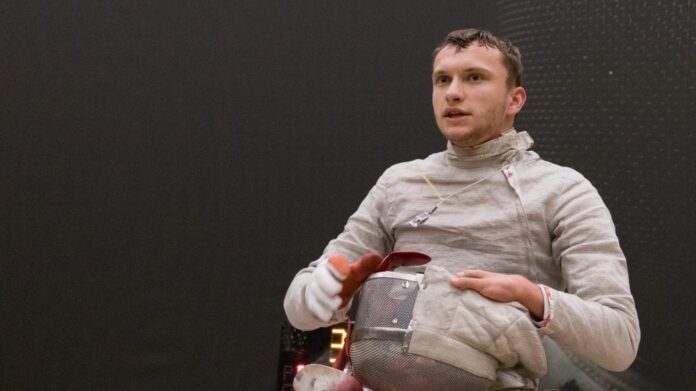Mr. Schmidt, was wheelchair fencing your passion right from the start?
I started wheelchair fencing when I was 13. Before that, I did all kinds of non-disabled sports with my prostheses. Wheelchair fencing was the first para-sport where I could show my full potential. I was successful relatively quickly. At my first German championship, I won the youth title straight away, then competed internationally and won at the youth world championships. After two years, I was already the best German wheelchair fencer. That was when I realized: “Okay, Rio is still a bit close, but Tokyo 2020 is my big goal.”
In your experience, is the sport inclusive?
The cool thing about fencing is that wheelchair fencing and pedestrian fencing are not particularly separate – in many clubs they take place together. At the beginning of my career I actually only fenced against pedestrians. There are also many tournaments that are inclusive. There are pedestrian tournaments in which wheelchair users were allowed to take part and vice versa. At club level, wheelchair fencing is very inclusive. At federal or state level, we could definitely work together more – perhaps especially at competitive level.
How is it in other nations?
If you look at other nations like the Italians or the French, there is more solidarity – pedestrians also come to the tournaments to warm up the wheelchair fencers. Here in Germany, there are always people who question why wheelchair fencers have to take part in the tournaments. But pedestrians often don’t care if their mobility allows them to win against the more disabled wheelchair fencers and they don’t ruin their results.
The classification according to the degree of disability is in Para-sports ongoing themeHow do you rate the classification within your sport?
Because we only have three categories, classification is very difficult. In other sports, it is much more specific. For us, it depends mainly on how much freedom of movement you have in the torso area. For example, I have a disability in my left hand and no feet. This means that my legs are not stable when I am in a wheelchair. As a result, I have to do everything on instinct and fence with others in a class, some of whom can walk perfectly normally. Nevertheless, it is fair because I can move too much for the B category, in which many are paraplegics. At most, this raises the idea that perhaps a new Paralympic intermediate category could be introduced in the classification.
You are currently studying environmental engineering. Do you already have an idea of what you would like to do afterward?
I don’t know yet which direction I’m going in. After the Paralympics in Tokyo, I wanted to think more about my career after sport. Up until then, I had only focused on sport and adapted everything else to it. I came to the course because of my vegan diet – for sport, I started to find out more about nutrition and as a result, I became very interested in the topic of environmental and climate protection.
I really enjoy being active in sports, including competitive sports. But I also need something later in life that will allow me to give something back to society, the world and nature. I want to start my career after sports as soon as possible. I’m currently taking a semester off, but after Paris I want to concentrate properly on my studies. And once I’ve got my bachelor’s degree, it’ll be time to start preparing for Los Angeles.
How can you inspire young people more: your career as an athlete or your environmental ambitions?
Both. Above all, I can use my sport to communicate important topics, for example when I can reach a larger community through the Paralympics. It is particularly important for young people to look after the environment, because people are not as strong as many people think – in the end, nature is much stronger and we must learn to stop fighting against it. Sport is a matter close to my heart – I have always had to do sport in my life. Through competitive sport, I can live it out in the best possible way and earn money from it. So sport is my priority at the moment. In the long term, however, I definitely want to focus on the environment.
